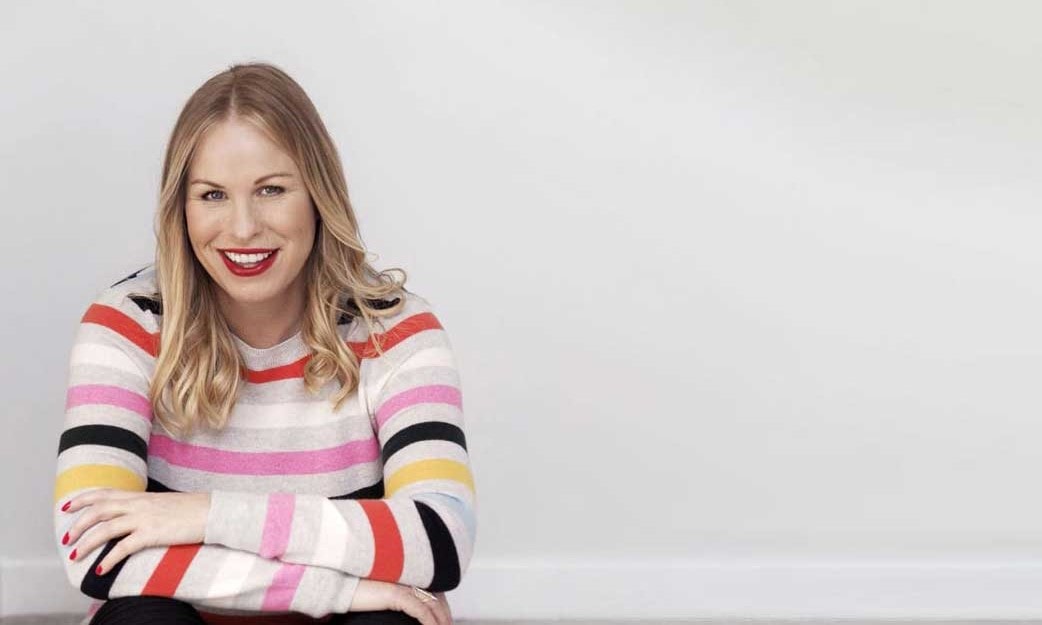Evolve hosted its first webinar on 22 July. Life coach and stress expert Becki Houlston spoke at length about resilience and techniques to enhance it—an especially relevant topic during these uncertain times.
It was a great success and we’ve had some fantastic feedback from our attendees. If you missed it, or would like to review some of the key points, here are some highlights.
Our next webinar is on 30 July. Digital media guru Nikki Webb will be talking about the advantages of making your business sustainable. Click here for more information.
Facing uncomfortable emotions

One of the big things I’ve learnt from getting access to thousands of people over the years is that very often we focus on and put a lot of energy into things that don’t really matter. For example, we focus perhaps on who is doing what on social media, rather than focusing on our wellbeing and understanding ourselves.
Most of us have this odd measuring scale where we focus more outwardly than we do internally. We also might focus on success instead of fulfilment—we’ve been trained to look at and prioritise success over actual fulfilment, and I’ve worked with many, many successful entrepreneurs that have got the bank balance but have found they have no fulfilment in life.
We also worry too much about what people think. But the reality is, emotions are everything. The problem is we’ve been conditioned to numb the uncomfortable ones, so we don’t learn about them. The foundation of resilience comes from those uncomfortable emotions.
We’ve lost things—but maybe we needed to lose them

One of the big things about now (the Covid crisis) is that 99 percent of us have lost something. Be it visiting people, finances, sadly some people their businesses, our peace of mind, our sense of freedom, our loved ones, our identity, some of our status. But we’ve also lost things that we needed to lose. Perhaps we’ve lost a bit of weight, or the constant distractions that get in our way. Perhaps we’ve lost some toxic relationships that we put a lot of energy into but got little out of.
The dawn after the darkest hour

Resilience is your ability to bounce back from adversity. Think of some of the people who have faced difficult situations and how they’ve responded in different ways that led to a better than expected outcome. Stories of resilience often begin with bad news, but we never want to share that; we might give a showbiz version of it but we never really share our bad news because we’re afraid of looking weak—that is our number one mistake.
Stories of resilience are made from the dawn that comes after the darkest hour. In this regard, history is filled with great role models, but think for a moment about who you model for your resilience because we learn our resilience. We obviously have our natural resilience to survive but we also model it, from our parents, from our social groups, from people that have had a profound impact around us. Look at characters such as Nelson Mandela, who was incredibly resilient to withstand that level of isolation, which is mentally and emotionally destructive, and he turned that adversity into triumph.
Don’t wait until you’re on your knees
The key to living a happy and fulfilling life isn’t about everything being free of challenges; what we need is to develop the resilience and resources and belief and trust in ourselves to know that we can get through those times.
Asking for help is one of those things. And I don’t mean asking when you’re on your knees—asking for help needs to be part of everyday life. It’s about communicating what’s important to us and finding a supportive team around us, because resilience isn’t just singular. When we surround ourselves with a good support team, we can get through anything. But the thing is we don’t ask for help because we’re afraid of looking vulnerable.
Get comfortable with being uncomfortable

One of our habits is the need to control things. We like to control what’s happening in our future, we like to control what other people are doing, because it’s our way of feeling safe. But one of the biggest costs of becoming too controlling is fun.
For the past five months we have all had a lot of things removed from our control, and you’re already seeing in the world people trying to find things they can control because they’re trying to feel stable again. But the landscape at the moment is just not stable and if you’re feeling that you’re stood backwards on an escalator, in high heels, then it’s about developing the resilience to get comfortable with that and not expecting to feel the firm ground beneath you for a little while yet.
Look for more options
One of our biggest limitations is that (in times of crisis) we tend to only come up with two options—should I stay or should I go? But really, we need to get creative about creating many more options.
If you’re facing a challenge right now and you’re not sure what to do, it’s probably because you’ve come up with two options and neither are right for you. Look at how you can create more options because I bet that if you’re at a stuck point in your life you are either avoiding the problem or you are not creating enough options.
When I work with my clients I encourage them to create twenty options for their challenge. And these don’t even have to be really good quality options or ones that you’re actually going to deliver, but by having more options you’re more likely to find a solution.
Name your fears
If you are stressed, look into yourself and ask, “What is it I’m really afraid of?” It’s going to make you feel uncomfortable but the freedom comes from acknowledging the fear, because when you name it, it loses its power. When it’s buried it stays powerful but we try not to hear it.
Listen to your body talk

One of the key resources to building resilience is positive self-talk. Our body is listening to what we say to ourselves, and most of us have a pretty horrific inner-critic. It pipes up and likes to tell us we’re not good enough, it likes to point out negative attributes about ourselves or where we’ve failed or how we don’t look good. We’ve tuned ourselves to get better by tuning into only what’s wrong, and that becomes an installed voice in our heads that we just sort of follow.
Try giving your negative self-talk a name. This way you can acknowledge it and then separate it from you. The other thing I’d recommend when you experience negative self-talk that makes your spirits sink is to not get into a dialogue with it. Don’t argue with it, just tell it this one statement: “I approve of myself.” So simple. And if it riles back at you with something like, “No you don’t! You’re an idiot!” you just tell it again, “I approve of myself.” And if on day one you have to say it twenty times, then do it. It’s such a simple solution to a massively painful issue.
Watch this inspirational video that Becki shared during the webinar:
